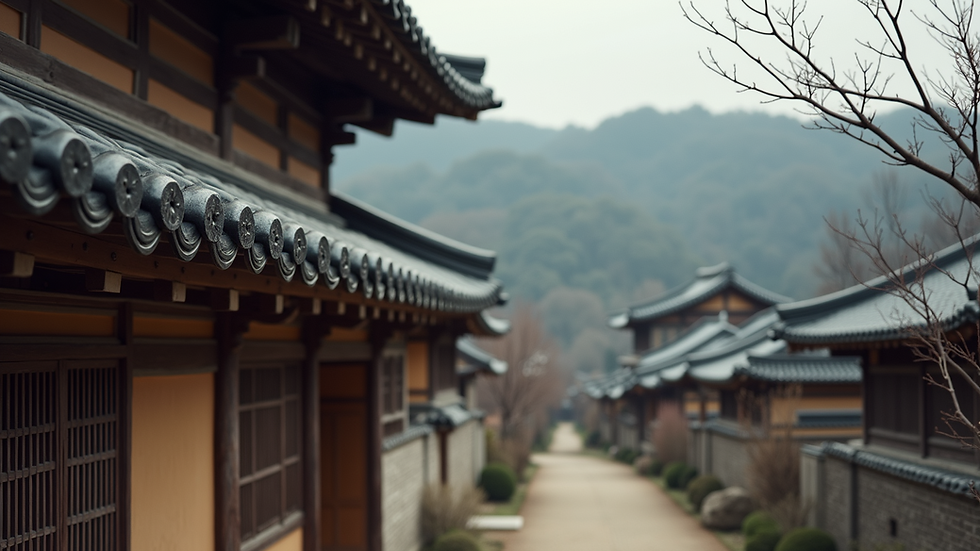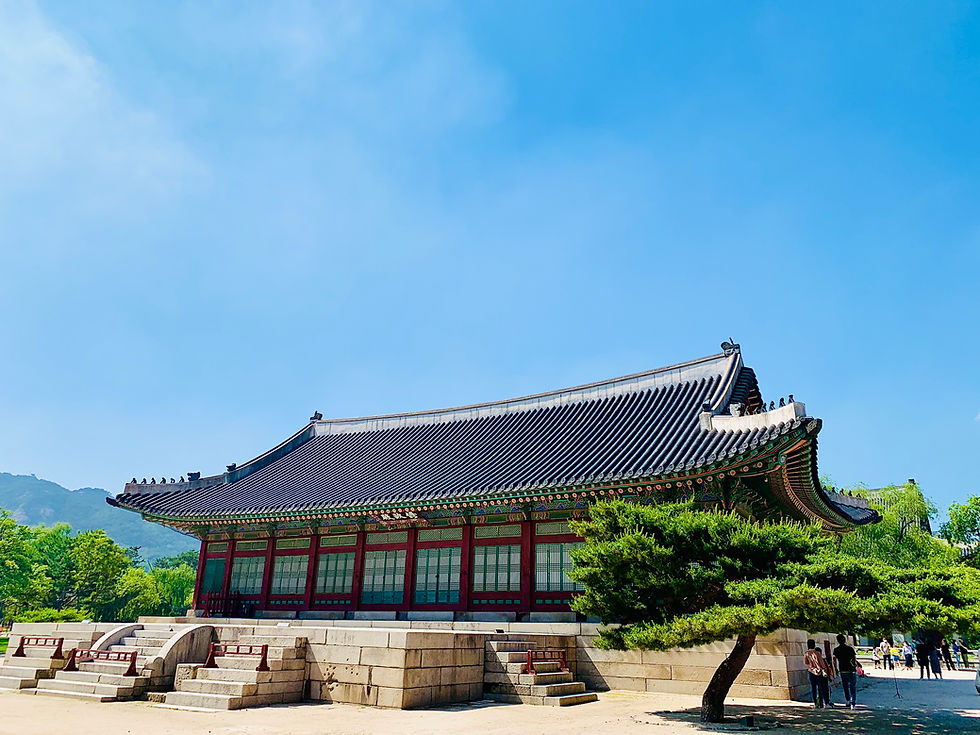Your PCS Move to Korea Guide: Quick Tips for Military Families and Service Members
- UOTR Editorial Team
- Jun 23
- 5 min read
Updated: Aug 7
Moving to a new country can be a whirlwind—especially when it's part of a Permanent Change of Station (PCS). For military families heading to South Korea, the journey is both exciting and full of unknowns. But with a bit of preparation and the correct information, settling into life in Korea can be smoother than you think. This guide walks you through the essentials: culture, housing, schools, transportation, and more—so you can focus on enjoying your next chapter.
Embracing Korean Culture: A Little Respect Goes a Long Way
Korea is a beautiful blend of traditional and modern life. One of the first things you'll notice is how much value is placed on respect and hierarchy. Bowing is common when greeting someone, and offering or receiving something with two hands is a small but meaningful gesture.
Learning a few simple phrases in Korean, like "안녕하세요" (annyeonghaseyo, hello), can go a long way in building friendly connections. It shows locals that you’re respectful, and that you’re making an effort, even if it’s just a small one.
Getting Ready for the Big Move
Before the adventure begins, there’s a bit of red tape to sort through. Make sure your military orders, IDs, passports, and medical records are all up to date and easy to access. If you’re bringing pets or shipping household goods, be sure to look into current import rules—Korea has specific restrictions on things like food, electronics, and other personal items. The earlier you start organizing, the less stress you'll feel when moving day arrives.
Finding Your New Home: On-Base or Off?
One of the most significant decisions you'll make is where to live. Most families choose between on-installation and off-installation housing:
On-installation housing is super convenient. You're close to work, surrounded by a supportive military community, and often within walking distance of schools and stores.
Off-installation housing gives you the chance to really experience life in Korea. Areas like Yongsan or around Camp Walker are popular for their family-friendly vibe. Rents can range from $1,000 to $2,500 a month, depending on size and location.
If you own a business and an want to operate a home based business, your best bet is to live on the installation. To legally operate a business, as a military affiliated person with a SOFA visa, you cannot operate a business off the installation or sell goods or services off the installation. So look into living on the installation if this is a need for you!
Whichever you choose, think about your lifestyle, commute, and how immersed in local culture you want to be.

Education: What to Know About Schools in Korea
If you have school-aged kids, choosing the right school is a top priority. DoDEA (Department of Defense Education Activity) schools are a solid option, with many parents reporting high satisfaction rates.
Beyond DoDEA, you'll find international schools and even some Korean schools that welcome expat families. Visiting schools, speaking with teachers, and inquiring about support for new students can help ease the transition. In addition, there are several homeschooling communities in Korea.
Getting Around: Cars, Subways, and Everything in Between
Korea has an incredibly efficient public transportation system. Buses, taxis, and especially the subway (with over 300 km of track in Seoul alone) make it easy to get around—even if you don't speak Korean.
Want to drive? You'll need an International Driving Permit (IDP) and a basic understanding of local traffic rules. Tip: Right turns on red lights are allowed in Korea, but only after a complete stop.
Exploring Korea by train or bus isn’t just easy on the wallet, it’s also one of the best ways to take in the country’s stunning landscapes and lively cities.
Healthcare and Staying Well
Korea’s healthcare system is known for being efficient and high-quality. Once you’re settled in, take some time to learn how everything works, especially when it comes to insurance and finding nearby clinics or hospitals. The good news? Most military families find that their coverage works smoothly with local providers, making it easier to get the care you need when you need it.
Emergency services are quick, urban areas often see response times under 8 minutes. Plus, many military bases offer fitness centers, wellness programs, and even mental health resources to help you and your family stay healthy and connected.

Building Your Community
Adjusting to a new place is easier when you're not doing it alone. Family Support Centers on base are excellent starting points for discovering events and resources and making new friends.
Outside the gates, Korea has plenty of opportunities to connect, whether it's joining a local hiking club, language or culture exchange, local volunteering, or taking a cooking class. The more you put yourself out there, the more rewarding your experience will be.
Food Adventures: Say Yes to Korean Cuisine
From sizzling bulgogi to hearty bibimbap and spicy kimchi, Korean food is full of bold flavors and new favorites waiting to be discovered. Don't shy away from local markets or street food stands—they're a great way to dive into the culture and make memories as a family.
Your Korean Adventure Awaits
Moving to Korea isn’t just another assignment, it’s an opportunity to grow, explore, and see the world from a whole new perspective. Yes, there will be some bumps along the way, but there will also be incredible moments you’ll never forget.
With a little preparation, a curious spirit, and a willingness to dive in, this chapter of your military journey could turn out to be one of the most meaningful yet.

PCS Move to Korea Guide: Essential Reads for Military Relocation
Explore these helpful resources in addition to our PCS Move to Korea Guide to make your military relocation smoother and more informed.
A digital resource hub full of practical info and insights to help you prepare for life in Korea.
Everything you need to know before arriving—from housing and food to culture and customs.
Explore short-term lodging options like Agoda and Airbnb that help bridge housing gaps during PCS transitions.
Real talk about the emotional and logistical sides of an OCONUS move.
From school enrollment to cultural adjustments, this guide supports your whole family.
Healthcare can be one of the most stressful parts of moving abroad. This practical guide breaks down how to communicate effectively, use translation tools, and confidently access medical care in Korea—even if you don't speak the language. A must-read for military families and expats alike.
Tips from people who’ve been there—what to pack, what to expect, and what to skip.
Base-specific advice and insider tips for those heading to southern Korea.
Learn how practicing Korean can help you feel more connected and confident.
A military spouse and mother of five reflects on her family's transformational decision to leave traditional schools and embrace homeschooling, crafting a flexible, culturally rich, and deeply personalized educational journey beyond the classroom walls.



1 Comment